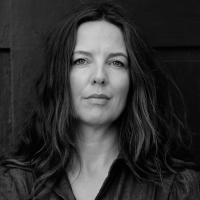Terror in New Zealand
Fifty people, many of them migrants, were killed in the recent terror attack in Christchurch. Jacinda Ardern, the New Zealand Prime Minister, is celebrated in media world-wide and among her own citizens for responding with “solace and steel to guide a broken nation,” as theGuardianexpressed it. At 38 years old, Ardern is the world’s youngest female head of state, and her age and gender seem to have informed her progressive ideals and style of leadership. While responses to terrorist attacks often fuel xenophobia and hate towards immigrants, enforcing border controls and getting tough on terrorists, Ardern has taken another, more inclusive route, one that might heal the nation rather than create further divisions between migrants and citizens.
By taking a closer look at Ardern’s rhetoric and actions we also acquire some more insights into a range of activist and political debates on race, identity and migration across the globe. Some of Ardern’s responses might consciously draw on these debates, while others are simply her way of comforting her nation. Still, in an era of migration and a growing anti-migration climate Ardern might have provided willing leaders with a new set of rhetorical tools with which to heal afflicted nations.
First, on the day of the attack Ardern went out within a few hours and laid the ground for her approach. Terror attacks often leads to a rhetoric of “Othering”, that there exists an “Us” and the “Other”, where “the Other” are often immigrants, Muslims, ethnic and racialized communities, who then face further law enforcement and criminalization framed as anti-terrorism. Ardern, by contrast, responded to the terrorist as follows: “You may have chosen Us, but we utterly reject and condemn you. You are not Us.” Including immigrants in the Us and rejecting the terrorist as the Other is a powerful rhetorical tool rejecting any notion that the white terrorist in anyway belongs to New Zealand or is accepted by this primarily White nation.
Ardern moved further into the ongoing debate on race and terrorism by calling the attack an “act of terrorism”. As is evident from many attacks by white nationalists this rarely happens, and calling what happened in Christchurch terrorism is a powerful way to reject the notion that only attacks performed by Muslims are terrorism, whereas attacks by white nationalists are simply “shootings” or a “violent event”.
Say their names
Ardern has also been cited in several media for saying that she will not mention the name of the terrorist: “You will never hear me use his name – we will use the name of the victims” so as not to provide the terrorist with the fame and notoriety he was apparently aiming at. Yet, Ardern’s “Say Their Name” approach also reminds us of the powerful “Say her Name” movement in the US, a social movement that seeks to raise awareness of black female victims of police brutality and anti-black violence in the United States and aims to honor the victims, thus adding perspectives and lived experiences to the discourse of racial injustice: saytheirnames, not those of the terrorists. Ardern voiced a concern that has been boiling over during recent terror attacks not to provide terrorists with fame, but she also turned a political movement for injustice towards black women in the US into one including the victims of terror and the immigrants who were killed in New Zealand.
Another US-based movement, the strong youth-driven anti-gun activists emerging in the wake of the school shooting in Florida, celebrated Ardern’s political move to immediately suggest change to the gun laws, as proclaimed in their tweet “Imagine” – imagine if the school shootings in the US were followed by politics and gun laws and not merely thoughts and prayers.
Healing a nation
Wearing a headscarf, Ardern went immediately to the affected communities, comforting, hugging and speaking with the families of the victims. A few days later, while speaking in Parliament, she opened her tribute in Arabic with an “As-Sallam-Alaikum” or “Peace be upon you”. She vowed that New Zealand would pay for the funerals and support the families of the victims in the aftermath of the killing, “regardless of immigration status”. One is reminded here of the “No one is illegal” pro-migrant movement, that is, a leader saying they will assist someone “regardless of immigration status” is quite significant and unusual in its inclusion of those victims or families who might be undocumented.
In her conversation with U.S. President Donald TrumpArdern reportedly said that the only thing she needed from him was “sympathy and love for all Muslim communities”. The response from migrant communities across the World and Muslim leaders in New Zealand to all these acts is, as some interviewees stated, “This made the immigrants feels that New Zealand is, and will always be their home.”
In the wake of terrorism, creating an Us rather than an Other in an era of migration and anti-immigrant climates is closely connected to the rhetoric and politics of migration, race and social justice. Maybe Jacinda Jardern has opened up new ways of healing a nation.
DIIS Experts

